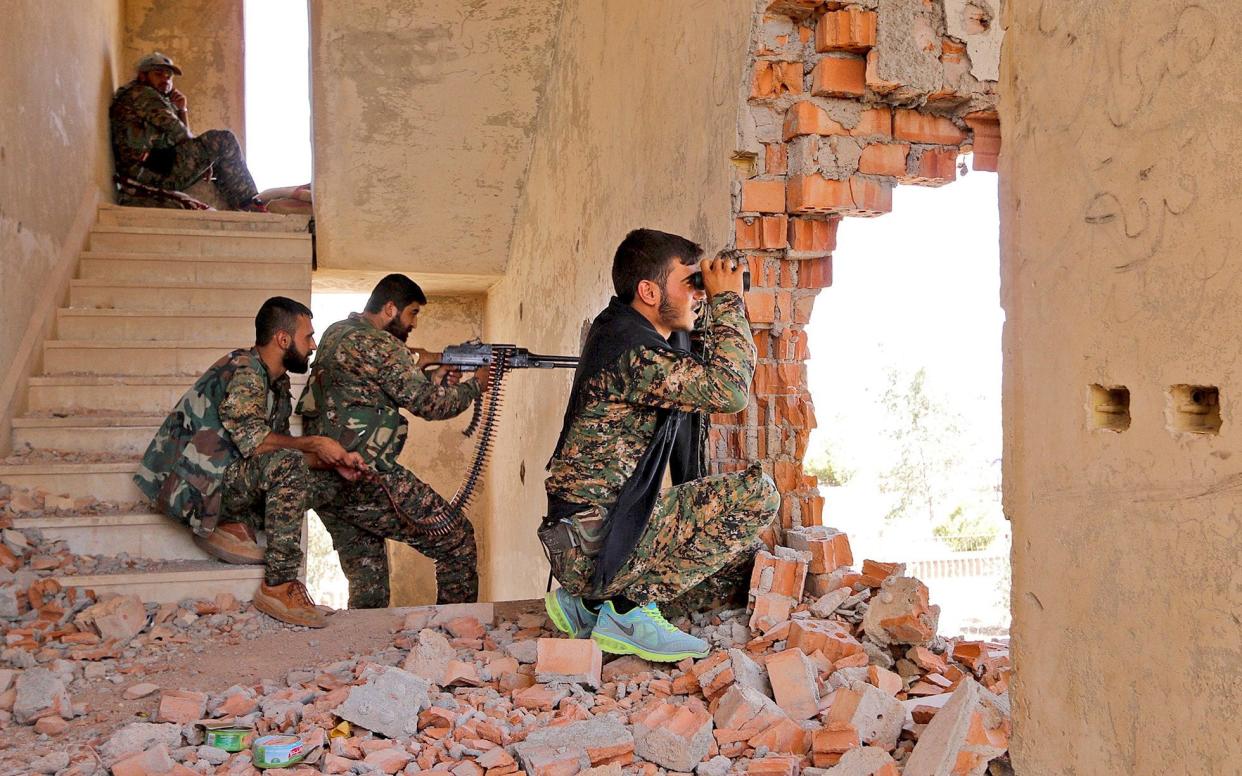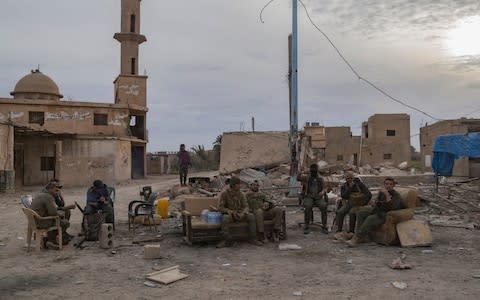Scottish sniper faces fraud charges after fighting in Syria while medically discharged from army

A Scottish former sniper has been charged with defrauding the British army pension scheme after travelling to fight in Syria while receiving funds for PTSD.
Alan Duncan, 51, from Lhanbryde in Moray, joined the fight against the Islamic State of Iraq and the Levant (Isil) in Syria, and spent more than three years on the battlefield.
Mr Duncan has since August 2003 been receiving a war disablement pension, due to a diagnosis of post-traumatic stress disorder (PTSD).
He is accused of failing to tell Veterans UK, which administers the armed forces’ pension scheme, about a change of circumstances which caused him to no longer suffer from the condition.
Mr Duncan received £15,200 between September 2013, when he set out for Syria, and October 2017.

He was due to appear in court in Scotland on Friday, but failed to attend as he was in Syria making a television documentary.
“He’s obviously not fighting any longer but is very much involved in the making of this film and is due back in the UK on or around the end of June,” said James McKay, his lawyer.
“He’s working on this film currently interviewing recently captured cells or sectors of the Isil army, which is why he’s very much deployed in that area.”
Mr McKay, who entered a not guilty plea to the charge on behalf of Mr Duncan, explained the allegations against his client were “very complex”.
Sheriff Olga Pasportnikov said: “Presumably the suggestion in the charge is that if he was fit enough to be fighting in Syria then he shouldn’t have been claiming these benefits.”
During his time in the Middle East, the Aberdeen newspaper Press and Journal reported that Mr Duncan explained he was not getting paid for his part in the conflict, instead relying on online donations – but said he was there “to do the right thing” and vowed to be there “until it is finished”.
A further hearing in Mr Duncan’s case was scheduled for July.

 Yahoo News
Yahoo News 
